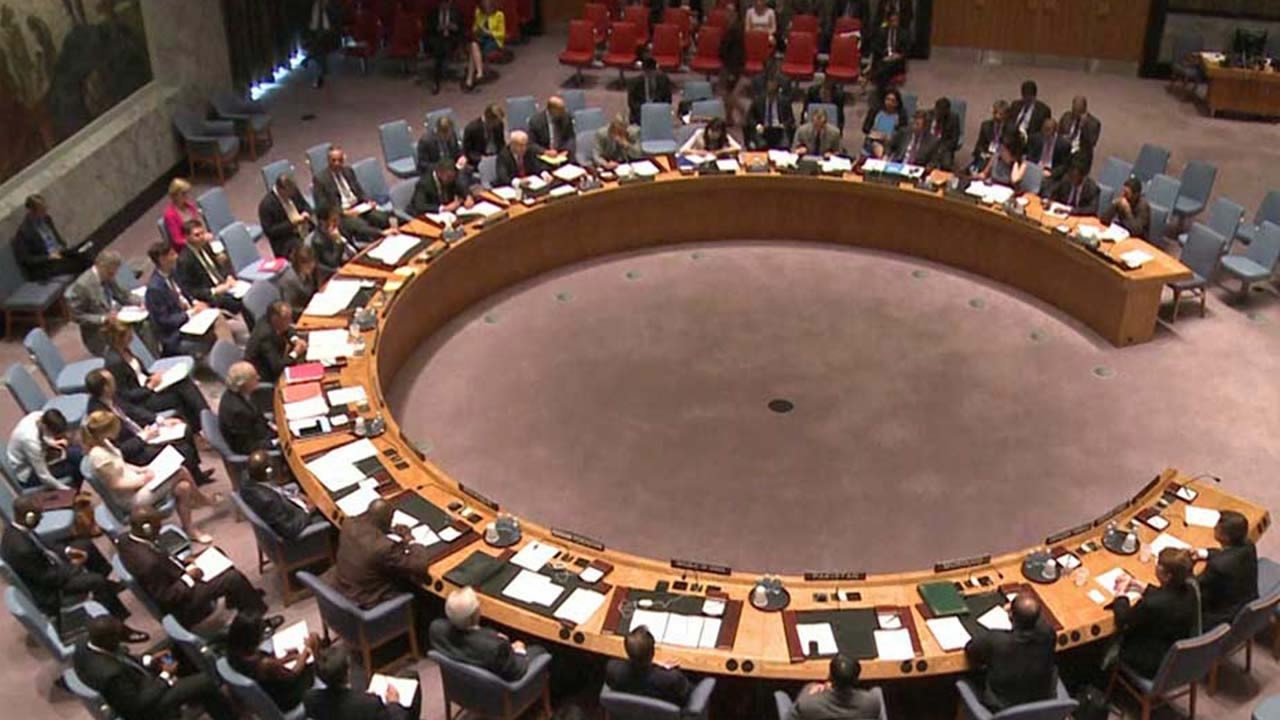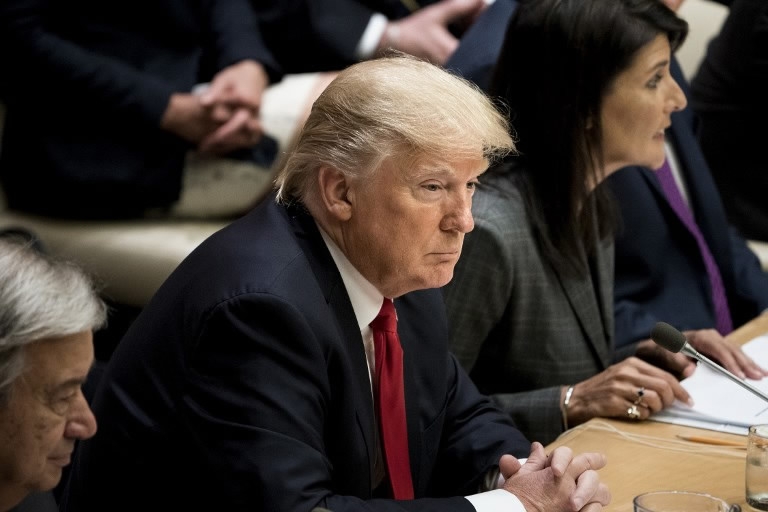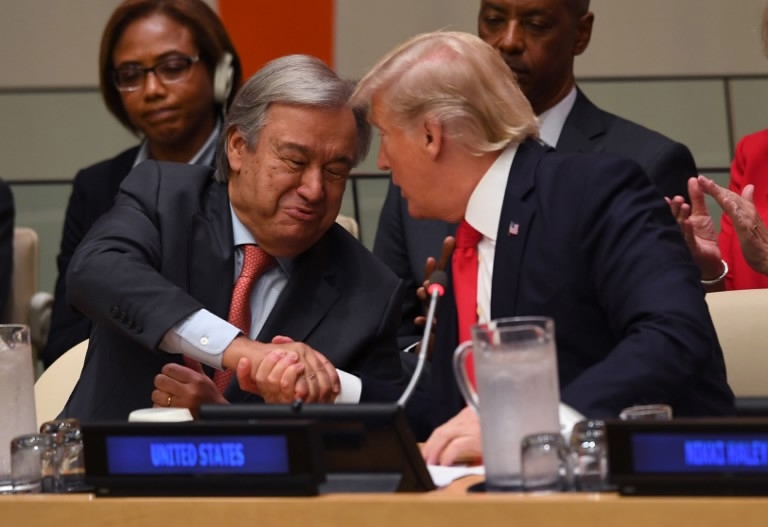
Politics
09:07, 19-Sep-2017
Military, humanitarian crises to take center stage at UNGA
By Nathan King

The 2017 UN General Assembly has a packed agenda. US President Donald Trump will make his debut appearance, and military and humanitarian crises from across the world will be front and center at the debate.
All eyes will be on US President Donald Trump, who will make his first address to the UN General Assembly. He has often been critical of the UN, and observers will be keen to hear if he continues this approach or takes a new stance.
“Nobody knows what Trump is going to do,” according to Richard Gowan of the Center on International Co-operation.
“He could give a very aggressive, anti-UN speech. Equally, he could try and use this as an opportunity to build better relations with other leaders and be relatively positive.”

US President Donald Trump listens during a meeting on United Nations Reform at the UN headquarters on September 18, 2017 in New York City. /AFP Photo
US President Donald Trump listens during a meeting on United Nations Reform at the UN headquarters on September 18, 2017 in New York City. /AFP Photo
In recent months the UN Security Council has shown rare unity. The body has passed multiple resolutions imposing sanctions on the Democratic People’s Republic of Korea (DRPK), punishing the country for its accelerated missile and nuclear tests.
This week, the US will try and push for more actions against Pyongyang, while experts believe other nations will press Trump to accept that the only solution is diplomatic, not military.
“This is more of an opportunity for a broad range of leaders, and especially leaders of US allies, to ram home the theme that we need a diplomatic solution to the Korean problem,” Gowan said. “And if President Trump gives even a hint that he is minded to go to war, that will shake up a lot of his audience.”
Chinese President Xi Jinping will not be in attendance this year, and so China’s delegation will be led by Foreign Minister Wang Yi. The diplomat will continue to push for Beijing’s plan to calm Korean Peninsula tensions.
Also known as “the dual freeze,” the proposal aims to secure a freeze on Pyongyang’s missile and nuclear tests in return for a reduction in US war games on the peninsula.

US President Donald Trump and UN Secretary-General Antonio Guterres shake hands during a meeting on United Nations Reform at the United Nations headquarters on September 18, 2017, in New York. /AFP Photo
US President Donald Trump and UN Secretary-General Antonio Guterres shake hands during a meeting on United Nations Reform at the United Nations headquarters on September 18, 2017, in New York. /AFP Photo
This year’s General Assembly will also be the first for new UN Secretary General Antonio Gutteres. He is leading an organization dealing with multiple security and humanitarian crises. Those range from civil wars in Syria and Yemen to record numbers of refugees fleeing Africa, the Middle East, and even Asia, as the Rohingya crisis rages in Myanmar.
Myanmar’s State Councilor and Foreign Minister Aung San Suu Kyi is not coming to this United Nations General Assembly. Other world leaders, including Russia’s Vladimir Putin and Germany’s Angela Merkel, will also not be in New York this week.
Iran’s newly re-elected president Hassan Rouhani, however, will attend the event. He will highlight Iran’s continued compliance with the historic nuclear deal, which hardliners in the Trump administration oppose.
11001km

SITEMAP
Copyright © 2018 CGTN. Beijing ICP prepared NO.16065310-3
Copyright © 2018 CGTN. Beijing ICP prepared NO.16065310-3